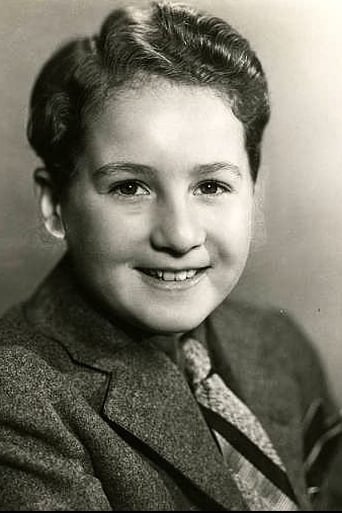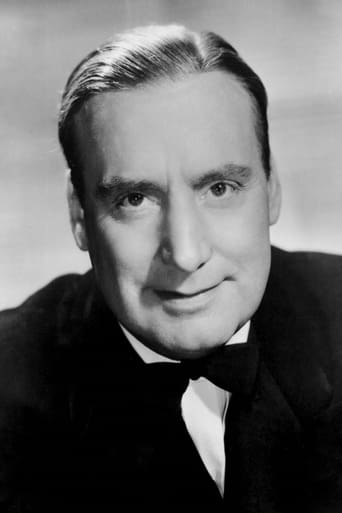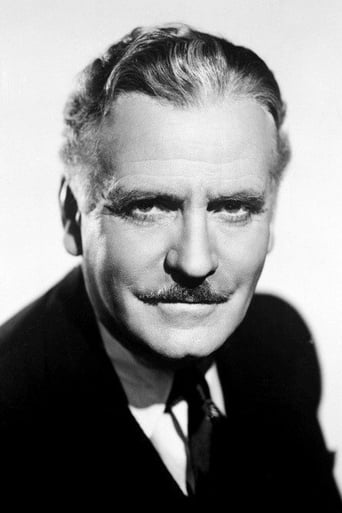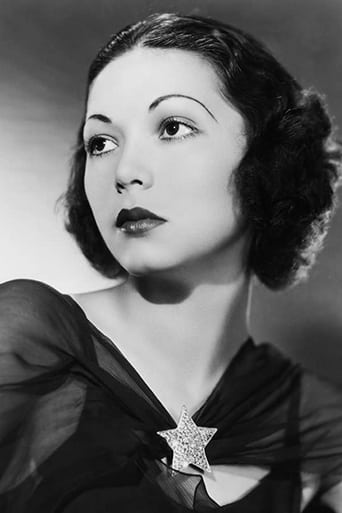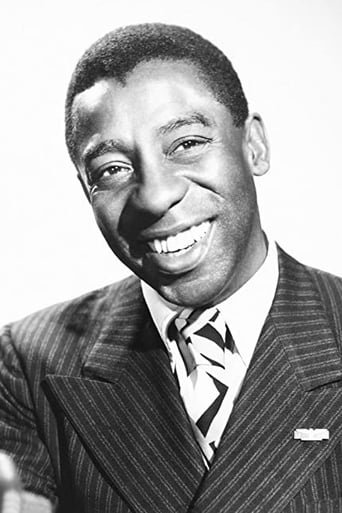Voxitype
Good films always raise compelling questions, whether the format is fiction or documentary fact.
Philippa
All of these films share one commonality, that being a kind of emotional center that humanizes a cast of monsters.
Bob
This is one of the best movies I’ve seen in a very long time. You have to go and see this on the big screen.
bkoganbing
This small, unpretentious, but very wonderful film from the combined pens of Langston Hughes and actor Clarence Muse is one of the very few films that deals with slavery and from the point of view of the slave. Remarkable also that this came out in the same year as Gone With The Wind which dealt with the lost Confederacy which founded on the notion of keeping slavery alive in North America.Muse and Hughes also borrowed a great deal from Mark Twain's Huckleberry Finn in developing the relationship of the young master Bobby Breen and house servant Muse. Breen while still a minor child inherits father Ralph Morgan's plantation and unfortunately an executor in the person of Edwin Maxwell. Maxwell wants to basically loot the estate, in the meantime he hires a very cruel overseer in Charles Middleton. When Muse does voice some mild objection to new policies instituted, Maxwell says he'll sell him. Breen and Muse make an escape worthy of Huck Finn and Jim and with Muse in drag and a veil they check into a posh New Orleans hotel operated by Alan Mowbray who is a Creole character out of Charles Dickens. Eventually they learn that Maxwell just wants to sell all the slaves and take the profits and run. Of course the slaves who have families don't have any say in the matter. In fact some whippings are dished out by Middleton though we never actually see one.The Hall Johnson Choir play the plantation slaves and they have several numbers singing Negro spirituals both happy and sad depending on the mood of the film. Breen also sings some songs like Oh Dem Golden Slippers and Sometimes I Feel Like A Motherless Child with the Choir. Also at Mowbray's dinner table Breen sings Stephen Foster's Some Folks Do which was my favorite musical number.This film should be seen and revived as a great treatise on the slave experience. There is some stereotyping, but it's done in the context of the condition and servitude of the slaves and there is never any demeaning of anyone in this film. And when you've Langston Hughes and Clarence Muse taking some inspiration from such authors and Twain and Dickens you know this film is something special. A lot of people in this cast from Bobby Breen on down got career roles here. Way Down South should be bought or rented at Amazon, it's a wonderful and moving viewing experience.
mark.waltz
Handsomely presented, this "B" musical drama has boy soprano Bobby Breen as the wronged heir to the estate of a Southern Plantation owner whose attorney uses his power ruthlessly to change the happy slaves from singing "Oh, Dem Golden Slippers" to "Nobody Knows the Trouble I've Seen". Breen's father (Ralph Morgan, brother of Frank, the "Wizard"), had been making lots of money on his peanut plantation, so he felt he owed a lot to his hard working slaves, treating them more like servants. But after Morgan is accidentally killed in a tragic accident, the ruthless attorney (Edwin Maxwell) begins to beat and sell the slaves, something Morgan had made Breen promise he would never do. Breen disguises the black butler (Clarence Muse) as a veiled white woman, and they escape, utilizing the help of a kindly innkeeper (Alan Mowbray) and a Scarlet O'Hara like actress (Steffi Duna) to get back his birthright and right the wrongs so the slaves can pick peanuts happily ever after while singing their sunny spirituals.The Johnson Hall Choir is utilized to show the happiness and gloom of the large stable of slaves, and is performed beautifully. The obvious flaw of the film is the stereotypical manner of the black actors and singers, but the film is set in 1854 and was released in 1939, the same year as the epic Civil War drama of the sagging south, "Gone With the Wind". That somewhat justifies the structure, and there are more white people fighting for justice for Breen's slaves than evil ones. If the film is not entirely historically accurate, it more than makes it up in being pure entertainment, and Breen does a nice job after being a bit cloying in his earlier films.
HarlowMGM
WAY DOWN SOUTH is for all it's low-budget "B"-ness, a remarkable and amazing film, a story with slavery at the fore front, written by two black screenwriters in a film apparently mainly meant for white audiences in 1939. That alone makes it a historic film but it is worth viewing for many additional reasons.Child star Bobby Breen stars as the only child of a widowed plantation owner (Ralph Morgan) in the Old South. Morgan may be the "Master" of many slaves but he is kindly and treats them kindly, providing them nice homes on the plantation and allowing them to marry whom they choose. When he is killed in an accident, his evil executor comes in and opens a new era of terror for the slaves, taking their homes and beating with a whip one slave for the slightest "disobedience". Bobby Breen is aghast at the whipping and tells him his father never beat any of the slaves which the executor dismisses. When the devoted house servant, Uncle Caton (Clarence Muse) "dares" to speak up and confirm this, the executor is outraged and demands Muse be sent to auction block the next day. Bobby overhears this and takes Muse in his buggy off to New Orleans so he can escape and take a riverboat to the North. Meanwhile, the executor has decided to sell off all the slaves and other properties of Morgan so that he and his mistress Steffi Duna can take the funds and move to France. Meanwhile in New Orleans, Bobby turns to kindly hotel owner Alan Mowbray for help in somehow stopping the executor from his wicked plans.Screenwriters Clarence Muse and Langston Hughes have a delicate tightrope to walk and they generally do it admirably if not always successfully. The movie may have a black stereotype or two but it is notably sympathetic to the slaves and their terror of mistreatment and being torn apart is quite real and most unusual for a film from the period. This dramatic film does have a number of musical numbers, most of them showcasing the black cast to a degree unparalleled in "white" films of the period. This was the first time I ever saw Bobby Breen, like many child stars he gets raked over the coals by some latter-day film historians but he is very acceptable in the lead and not at all brash, he also boasts a fine soprano voice. Clarence Muse is both co-screenwriter and co-star here and while he does have a "spooked" moment and at one point disguises himself in drag (face and hands covered as well to play a "white lady"), the role is a fairly dignified one. One does regret lovely Sally Blane has a role that is little more than a bit here, one of her last films. Langston and Muse may not have written a radical film but it is a trailblazing one for the era with sympathy for blacks enslaved and a corrupt "master" apparently punished in the end.
ivan-22
I liked everything about this forgotten, unpretentious, good-natured, well-made film ahead of its time regarding "the race problem". It delivers far more solid good time than many a famous films. It's a thrill to see nothing but unknown actors, all of them good. Bobby Breen is also an exceedingly confident and accomplished singer.
